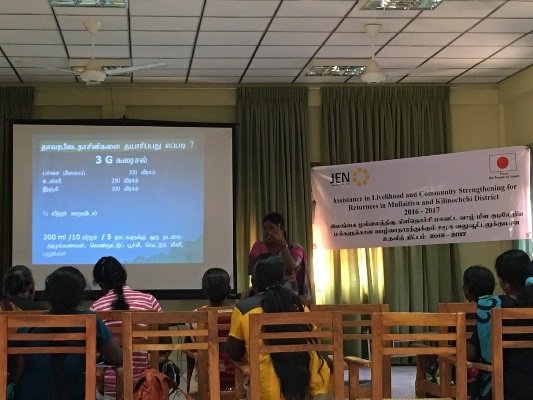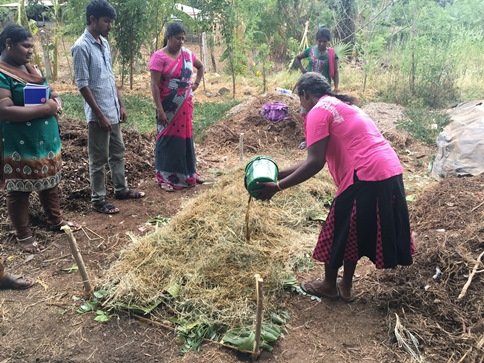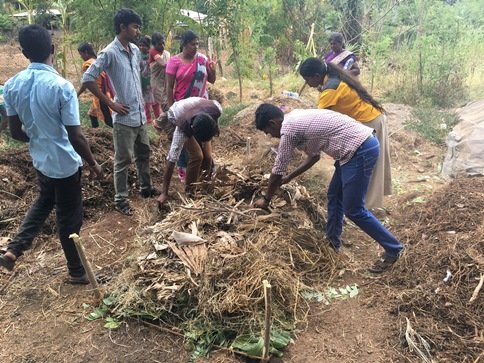By Miyako Hamasaka | PR Manager
JEN held an agricultural workshop in Mullaitivu district, Sri Lanka.
As a part of our current agricultural livelihood recovery programme, JEN is enhancing people’s agricultural skills, so that people returning to the district are able to practice more productive farming. For this year we held an agricultural workshop for 38 households in Mullaitivu district with the support of the Department of Agriculture on 26 September.
During the workshop, attendees learnt about organic farming, apiculture, and mushroom production in seminars. They also went to a model farm run by the Department of Agriculture to receive instruction about making organic composts, how to make fertilizer out of plants grown in the northern region and how to make organic pesticides. Farming using pesticides is becoming increasingly popular in Sri Lanka but this is causing more people to develop and suffer from liver ailments due to their drinking water contaminated with pesticides. By learning about organic agriculture in this workshop, JEN thinks that we have instructed a more sustainable way to farm. Also the Department in the northern region of Sri Lanka is now focusing on the growing of mushrooms in addition to current crops such as eggplants, okuras, watermelons and peanuts. Mushrooms are a suitable commodity for the recovery of people’s livelihoods because they are sold at higher prices than other vegetables. However, growing mushrooms is a first for most farmers. So the programme under which the Department of Agriculture provides mushroom spores at cheaper prices and provides guidance to farmers on how to grow mushrooms was also introduced in this workshop.
In the demonstration on organic compost, the participants practiced making compost according to the instructor’s guidance. To do so, the participants first laid hay within an enclosed area and covered it with soil. Next, they watered the soil and laid withered banana leaves on the soil and then, again, covered this with hay. Then, they sprayed the pile with water mixed with cattle dung. There were some who hesitated in watering the pile when they smelt the cattle dung. Repeating this process several times over several weeks will produce ready to use compost.
The participants looked tired as they had practice outside on a hot day, but it seemed to be a productive workshop.
Project reports on GlobalGiving are posted directly to globalgiving.org by Project Leaders as they are completed, generally every 3-4 months. To protect the integrity of these documents, GlobalGiving does not alter them; therefore you may find some language or formatting issues.
If you donate to this project or have donated to this project, you can receive an email when this project posts a report. You can also subscribe for reports without donating.


